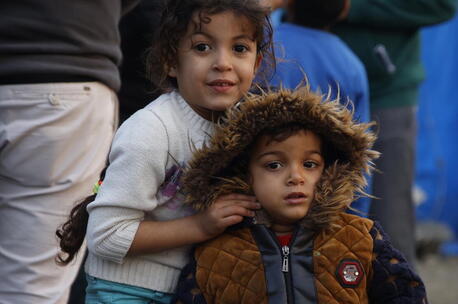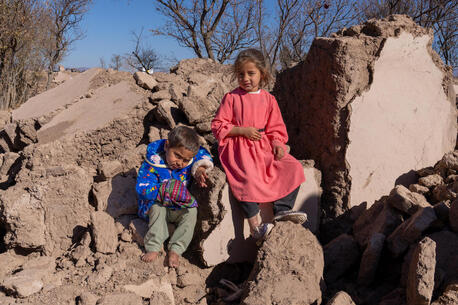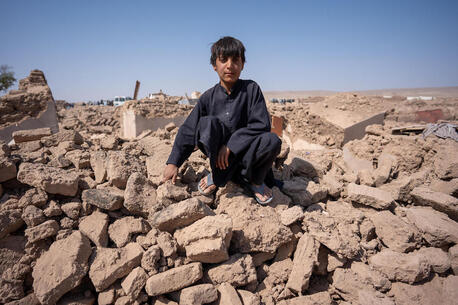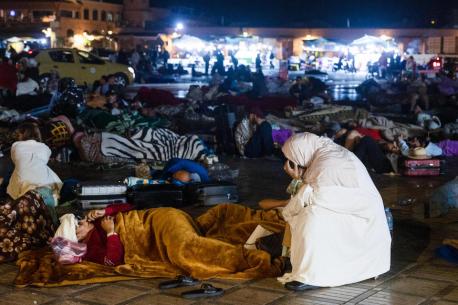
Earthquake in Morocco
The search for survivors continues in Morocco following a magnitude-6.8 earthquake, the strongest seismic event to hit the country since 1960.
Families in several cities in Morocco rushed out of their homes and into the streets after a powerful earthquake struck at 11:11 p.m. on Sept. 8, 2023. A 4.9 magnitude aftershock followed 19 minutes later; several more have been reported.
Buildings collapsed, leaving nearly 3,000 people dead and more than 5,500 injured. The urgent search for survivors continues.
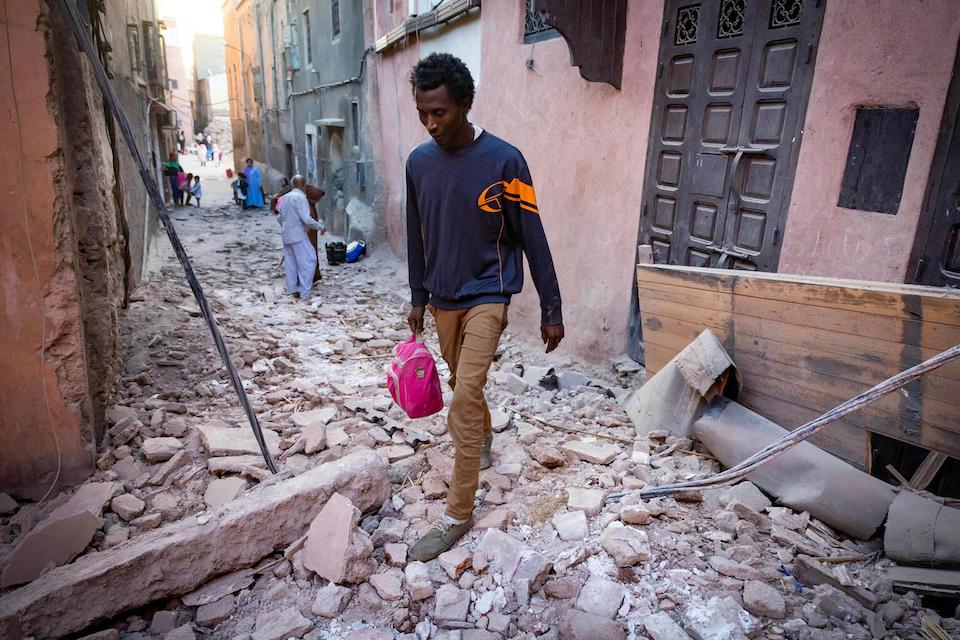
Families are trapped under the rubble of their homes
The epicenter of the magnitude-6.8 quake was in the High Atlas Mountains about 45 miles southwest of the city of Marrakech.
Many Moroccan children and their families are trapped under the rubble of their homes. According to the Ministry of Education, 530 schools and 55 boarding schools have been damaged. Damage to parts of Marrakech's Medina, a UNESCO World Heritage Site, has also been reported. Hospitals in the city are receiving an influx of injured people; authorities have called on residents to donate blood.
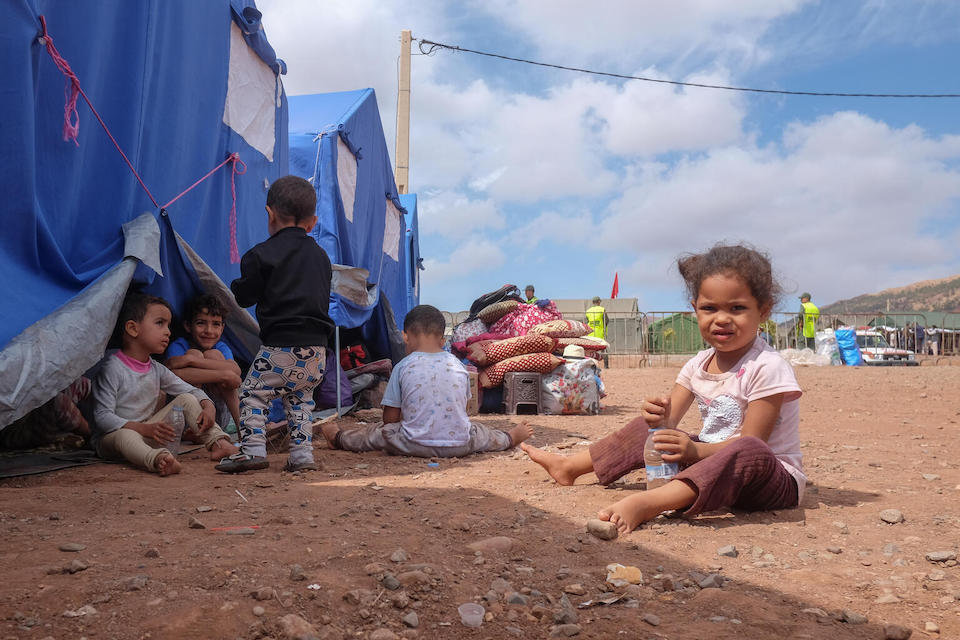
The United Nations stands ready to assist the Government of Morocco with earthquake recovery efforts
More than 380,000 people live within 30 miles of the epicenter. Rescuers are struggling to reach remote mountainous villages over roads blocked by debris.
António Guterres, United Nations Secretary-General, issued a statement saying the United Nations is ready to assist the Government of Morocco in its efforts to aid the impacted population.
The United Nations is in constant communication with the authorities to support assessment and response to the situation. Consultations are ongoing in order to further identify areas where the UN and its partners can provide support in the coming hours and days.
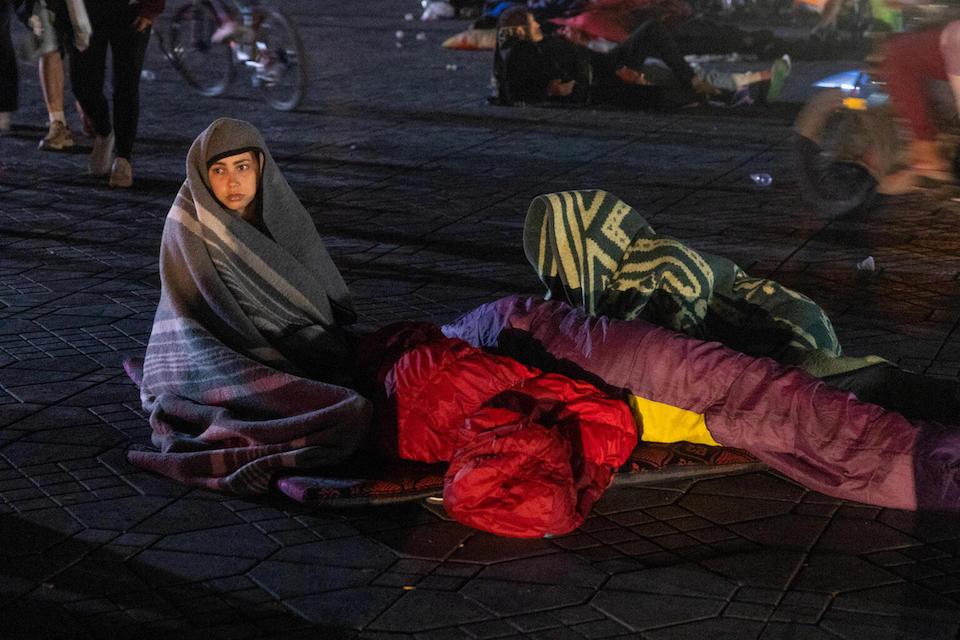
UNICEF puts children first in emergencies
In earthquakes and other emergencies, children are always among the most vulnerable. Children and families displaced by the Morocco earthquake will need shelter, safe water, medical care, protection and psychosocial support. Morocco earthquake survivors will need help to rebuild their lives.
Whenever and wherever emergencies strike, UNICEF puts children first. Your donation helps UNICEF stay at the ready to provide emergency support for children and their families. Please donate today.
HOW TO HELP
There are many ways to make a difference
War, famine, poverty, natural disasters — threats to the world's children keep coming. But UNICEF won't stop working to keep children healthy and safe.
UNICEF works in over 190 countries and territories — more places than any other children's organization. UNICEF has the world's largest humanitarian warehouse and, when disaster strikes, can get supplies almost anywhere within 72 hours. Constantly innovating, always advocating for a better world for children, UNICEF works to ensure that every child can grow up healthy, educated, protected and respected.
Would you like to help give all children the opportunity to reach their full potential? There are many ways to get involved.



